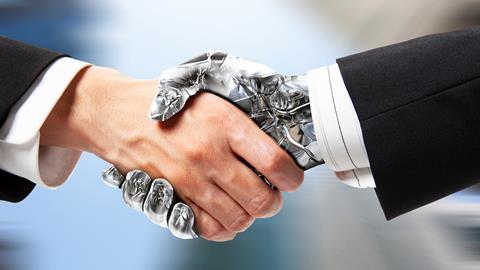The Reasonable Robot
Ryan Abbott, Cambridge University Press, 156pp.
What with the A-levels 'mutant algorithm' scandal and police facial recognition’s drubbing in the Court of Appeal, this has not been a great summer for intelligent machines. Ryan Abbott, professor of law and health sciences at the University of Surrey, reckons it is time to consider whether robots - a convenient shorthand for systems based on machine learning and natural language processing - should get a fairer deal.
In this slim book he addresses four legal questions that arise from AI’s growing role in society. Should robots pay taxes? What happens when AI systems cause harm? Can computer systems own intellectual property? How would we punish a transgressing robot?

Tying the questions together is the theme of legal neutrality: the argument that the law should not discriminate between artificial and human intelligence. Don’t expect simple answers, except possibly to the question on punishment (spoiler: you can’t).
Gazette readers may be most interested in Abbott’s approach to the second question, which, given proposals to allow self-driving cars on UK motorways, is already pressing.
At the moment, he contends, tort law is biased against AI because of the doctrine of strict liability for product faults. (His examples are drawn mainly from the US.) With this approach, there is no fair shake for the ‘reasonable robot’ of the title. But will this still apply when self-driving cars become 1,000 times safer than human drivers, as the author predicts they will? At what point do insurers in particular start ruling that humans are the unreasonable ones when they insist on taking the wheel? In other words, at what point does AI replace Protagoras' ‘man' as the measure of all things?
That is the point, I suspect, when the argument for legal neutrality will really kick in. Abbott concedes that, while it is important not to erect barriers to progress, identical treatment would be undesirable, even if it made life easier for lawyers.
Mutant algorithms, it seems, will need to keep watching their step.
































No comments yet